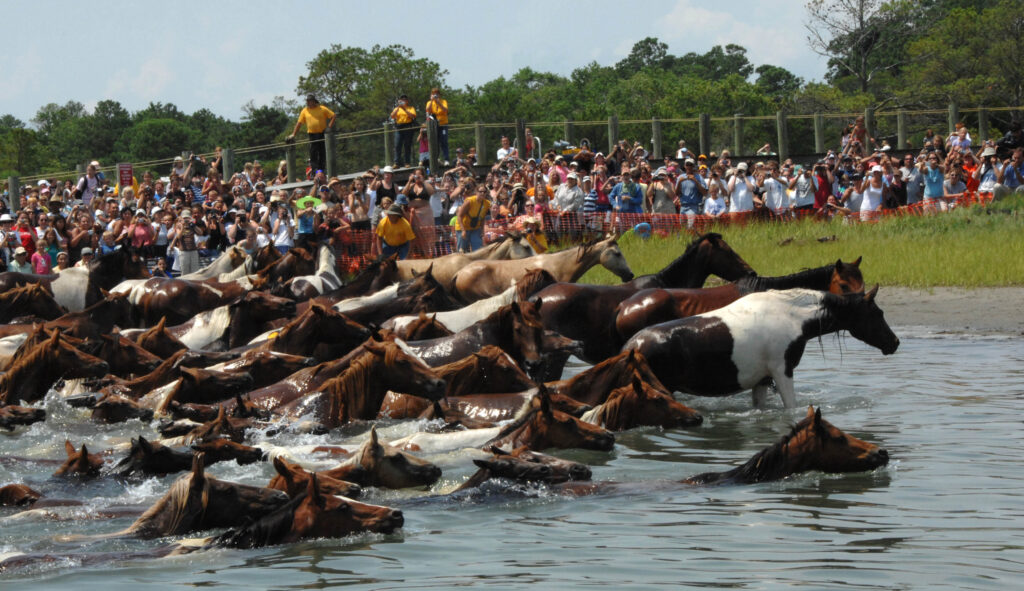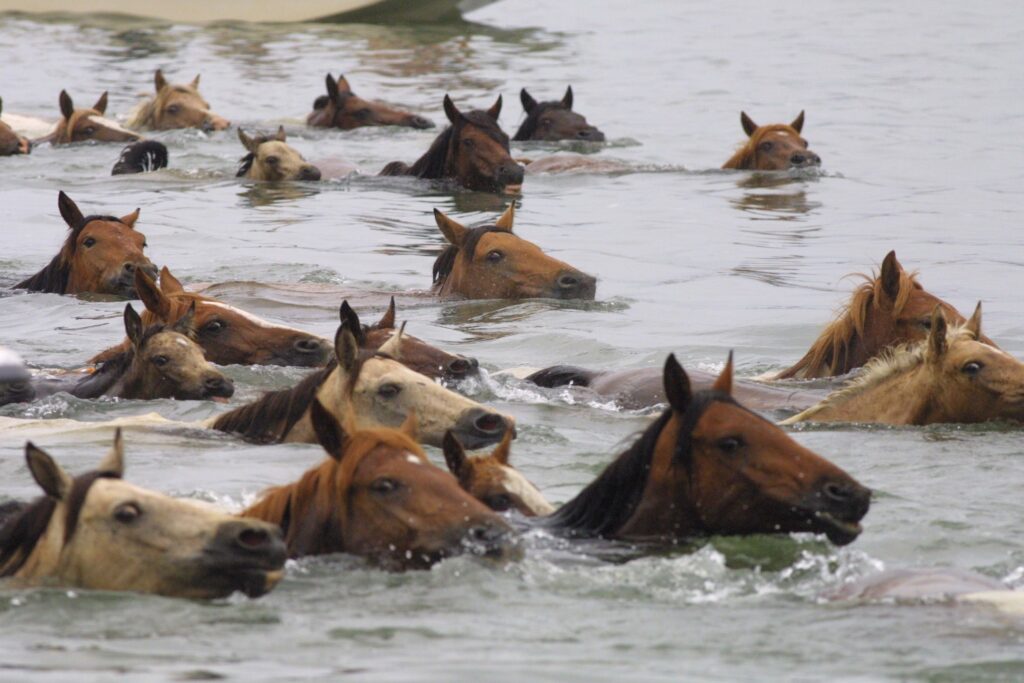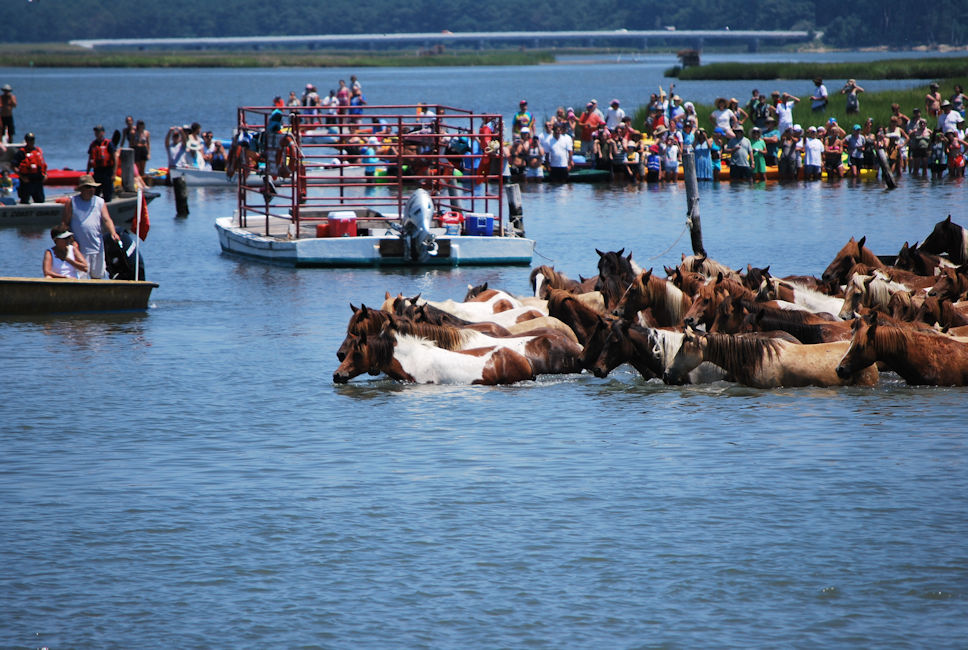Inside The Chincoteague’s World Famous Pony Swim
The brown pony with a white blaze and a long, golden mane offers the other stallions a squint of the eye. Pawing the ground in the corral, he arches his neck and looks about. Getting so close to other men is unusual for him. He snorts and flicks his ears forward as they send out quiet whinnies. An older woman remarked, “There’s Riptide.” Currently, he’s the most popular stallion in the barn.

Chincoteague Pony Swim, which brings together all of the wild horses on Virginia’s side of Assateague Island and herds them across a channel before auctioning them off, featured Riptide, one of the most well-known horses in the event. Misty of Chincoteague, a novel by Marguerite Henry, made Chincoteague’s wild pony population famous in 1947. An group that maintains and supervises the ponies benefits from the money raised.
“We control the wellbeing of the entire herd,” said Alex Tucker, a member of the “saltwater cowboys” at the fire department. This means that the firm limits population growth by holding an annual auction, bringing in a veterinarian when a horse appears unwell or injured, and occasionally providing fodder during severe winters. Chief Bobby Lappin, head of the department’s fire department, says that otherwise “we minimize our involvement with them.” Because they want to be able to “survive on the beach as wild, Chincoteague ponies,” horsekeepers don’t want the animals to become too reliant on humans.

Thousands of people flocked to the beach in the hours leading up to the swim on July 27. “Hello, hey,” the cowboy said as he cracked his whip as he rounded up his herd and led them to the water. Horses whinnied and dipped their heads into the water, allowing onlookers to only see the heads of swimming horses.
King Neptune, the first stallion to arrive, was crowned and given away to a lucky raffle winner. Several more waded out to the coast and began nibbling on the marsh grass that had been growing there. A temporary plastic fence was put up to keep the groupies from petting the horses.
Any method of controlling wild, feral, or free-roaming horses is fraught with controversy, and the Chincoteague roundup is no exception. That the procedure of rounding up horses is unpleasant to them, they are not used to swimming or the foals would not be able to make the crossing is a concern for some animal-welfare advocates.” The ponies are adorable, and the fire company accepts both cash and credit cards, so there is a problem with people who aren’t prepared for owning a pet making impulse purchases.

While every horse is inspected before the swim by a veterinarian, the fire department takes great care to ensure the safety of the animals. To save them from having to swim over the channel, volunteers transport the young horses and their mothers to the auction location via a bridge. For any horse that is too old, unwell, or pregnant, the same rules apply. As a result, the swim is just a few minutes long, and horses are able to walk on the bottom of the marsh in some parts of the channel. A Chincoteague Pony Rescue is available for any horses that buyers can’t care for during and after the journey.
Another method of managing the park’s population is employed by the National Park Service. It uses hormonal birth control darts to regulate a herd of horses on the Maryland side of Assateague Island. It’s expensive, hazardous, and alters the horse’s temperament to surgically spay and neuter them.
Keeping wild horses in check isn’t just a problem for the residents of the island. Horses are rounded up every year by the Bureau of Land Management (BLM) and sold to either riders or rescue organizations in the Midwest. However, BLM was criticized for selling 1,794 mustangs to a customer who shipped them to Mexico to be butchered for horsemeat between 2009 and 2012. When it comes to the number of wild horses in the United States, there are simply too many of them.
In the United States, feral horses receive greater attention and protection than non-endangered wild animals. When deer populations are regarded to be excessive in an area, it is common practice to increase the number of hunting licences issued.
About a fifth of the participants at the Pony Swim were sold. Seven foals, including Riptide and the remainder of the adult horses, were herded across the channel. They’ll be able to roam free on Assateague Island until July of next year, when they’ll be rounded up again.
